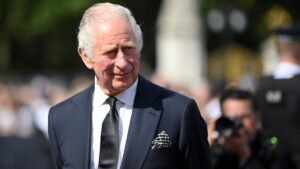Former Peruvian President Ollanta Humala has been sentenced to 15 years in prison after being found guilty of money laundering in connection with illegal campaign financing—a major verdict in Peru’s ongoing battle against political corruption.
His wife and close political partner, Nadine Heredia, received an identical 15-year sentence. The ruling marks the conclusion of a lengthy investigation into the couple’s ties to Odebrecht, the Brazilian construction conglomerate at the center of one of Latin America’s largest corruption scandals.
A court in Lima found that Humala, 62, accepted illicit contributions from Odebrecht to fund his presidential campaigns in both 2006 and 2011. Heredia, who co-founded Peru’s Nationalist Party with Humala, was also convicted of laundering these funds.
Prosecutors had pushed for stiffer penalties—20 years for Humala and 26.5 years for Heredia—but the court settled on 15-year terms after a trial spanning more than three years. While Humala was present in the courtroom for the verdict, Heredia appeared remotely via video link.
Throughout the trial, the couple maintained their innocence. However, the verdict effectively ends their political futures. Peru’s foreign ministry confirmed that Heredia has been granted asylum in Brazil and will be allowed safe passage there with her son.
Humala, a former army officer who rose to prominence in 2000 after leading a failed rebellion against then-President Alberto Fujimori, first ran for president in 2006 with support from Venezuela’s Hugo Chávez. Prosecutors claimed he received illicit campaign funding from Chávez during that race, though Humala ultimately lost to Alan García.
In 2011, Humala rebranded his image, distancing himself from Chávez and embracing the moderate policies of Brazil’s then-president Luiz Inácio Lula da Silva. He won that election, defeating right-wing candidate Keiko Fujimori, daughter of the former president he once tried to overthrow.
Despite his victory, Humala’s presidency was plagued by internal strife, social unrest, and diminishing congressional support. His legal troubles began shortly after leaving office in 2016, coinciding with Odebrecht’s admission that it had paid hundreds of millions of dollars in bribes to win contracts across Latin America.
In 2017, both Humala and Heredia were placed in pre-trial detention, though they were later released as the investigation progressed. The sentences handed down this week now serve as a stark reminder of the far-reaching consequences of Odebrecht’s corrupt dealings—and of the enduring challenges facing Peruvian democracy.



























